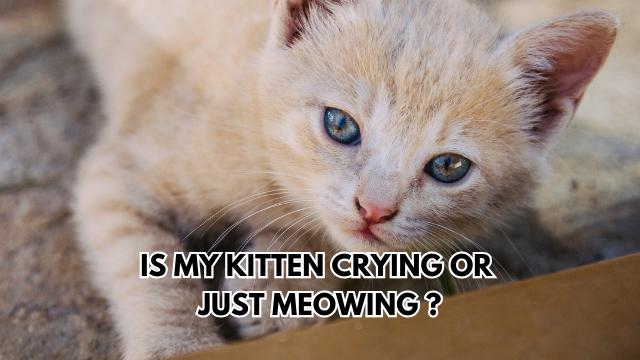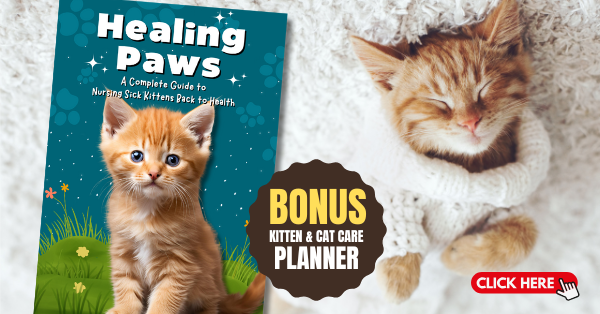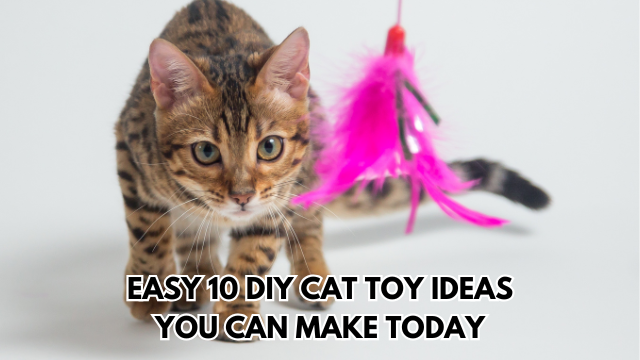“Cats are connoisseurs of comfort.” This famous quote by James Herriot is the perfect way to sum up what makes a kitten content. As a new kitten parent, you might be wondering if your kitten is happy or if there’s more you could do to make them feel at home.
10 Signs Your Kitten is Happy
Understanding kitten happiness isn’t always straightforward, but by observing their behavior and body language, you can get a pretty good idea of how they feel.
From purrs to playful pounces, this article will help you decode your kitten’s happiness levels so you can be sure they’re living their best little life.
1. Purring: The Ultimate Sign of Contentment
One of the most universally recognized signs of feline happiness is purring. But did you know that purring isn’t only a sign of joy?
While it’s often associated with contentment, cats can purr for different reasons, including to soothe themselves when they’re stressed or in pain.
According to The Humane Society, when a kitten purrs while relaxed in your lap or when you’re petting them, it’s generally a sign they feel safe and happy.
So, if your kitten frequently purrs in these situations, it’s likely they’re enjoying themselves.
2. Kneading: A Kitten’s Happy Habit
Kneading is an adorable behavior where kittens push their paws into a soft surface, almost like they’re kneading dough.
This behavior goes back to kittenhood when they would knead their mother to stimulate milk flow.
If your kitten kneads on you, it’s a sign they associate you with comfort and security, which usually means they’re happy.
According to PetMD, kittens tend to knead when they’re content or feeling nostalgic. So if you notice kneading, you can be sure your kitten is feeling relaxed and joyful.

3. Tail Language: Reading the Signs
Your kitten’s tail is like a mood barometer. By watching how they carry their tail, you can get clues about their mood.
If your kitten’s tail is upright with a slight curve at the tip, they’re probably in a good mood. This position shows that they’re comfortable, confident, and happy in their surroundings.
On the other hand, if their tail is tucked between their legs, it’s usually a sign of fear or unease.
According to The American Society for the Prevention of Cruelty to Animals (ASPCA), a kitten’s upright tail is one of the clearest indicators of their happiness.
4. Playfulness: An Active Kitten Is a Happy Kitten
One of the easiest ways to spot a happy kitten is by watching how playful they are.
Kittens are naturally curious and playful, so if yours is pouncing, chasing, or play-fighting, they’re likely in high spirits.
Playing is an essential part of a kitten’s development, and it helps them release energy and learn social skills.
Based on insights from The Spruce Pets, a kitten who plays frequently is usually a happy, well-adjusted kitten.
Try introducing a variety of toys to keep things interesting, and watch for signs that they’re having fun.
5. Eating Well and Sleeping Soundly
A kitten that eats well and sleeps peacefully is generally a happy kitten.
When your kitten has a healthy appetite and maintains a regular eating schedule, it’s a good sign they’re comfortable in their environment.
On the flip side, if your kitten suddenly loses interest in food, it might indicate stress or illness.
Similarly, kittens need plenty of sleep to grow and recharge. If your kitten curls up and snoozes soundly, especially after a good play session, they’re likely feeling safe and content.
According to VCA Animal Hospitals, a happy kitten will have a predictable rhythm of eating, playing, and sleeping.
6. Gentle Head-Butts and Nuzzles
If your kitten head-butts or nuzzles you, they’re showing affection and trust.
Cats have scent glands on their head, so when they press it against you, they’re marking you as part of their “family.”
According to The Humane Society, head-butting is a sure sign that your kitten feels bonded to you, and it’s a behavior they display only when they’re relaxed and happy.
So if you’re getting head-butts, you’re definitely doing something right!
7. Relaxed Body Language
Body language is an essential clue when it comes to figuring out how your kitten feels.
When a kitten is happy, they’ll often sit or lie down with a relaxed posture, and their ears will be facing forward or slightly tilted. If they’re stretched out on their side or belly-up, they’re in a super comfortable state.
According to ASPCA experts, a relaxed and open posture usually indicates that your kitten feels safe and content.

8. Curiosity and Exploration
Kittens are naturally curious creatures. When they’re in a happy and secure environment, they’ll want to explore and satisfy their curiosity.
If your kitten frequently sniffs around new corners or interacts with new objects, this curiosity is often a sign of contentment.
Based on advice from feline experts at The Spruce Pets, a kitten who feels safe and happy will be more likely to explore their environment.
Just make sure to kitten-proof your home to prevent any accidents during these adventurous moments!
9. Following You Around
If your kitten follows you around from room to room, it’s not just because they’re curious. It’s a sign they feel a strong bond with you and enjoy your company.
Kittens who feel comfortable and happy around their owners will often want to stay close to them.
According to PetMD, kittens that form a close bond with their human companions will frequently follow them around, even in situations where they don’t necessarily need something.
10. Minimal Vocalization (but Not Silence)
While it’s normal for kittens to meow and make other noises, constant vocalization can sometimes indicate distress.
A happy kitten usually meows occasionally, either to greet you or to get your attention, but they don’t tend to be overly vocal.
According to The Humane Society, if your kitten is relatively quiet and meows softly for attention, they’re likely feeling content. Loud, frequent meows could be a sign of boredom or discomfort, so listen carefully to understand the difference.
Practical Advice for Keeping Your Kitten Happy
Now that you know what signs to look for, here are a few practical ways to keep your kitten happy and satisfied:
- Provide Routine: Kittens feel safe when their daily routine is consistent. Feeding, playtime, and bedtime should follow a regular schedule so they know what to expect.
- Interactive Play: Engage in regular play sessions with interactive toys like feather wands, which help your kitten use their hunting instincts and stay active.
- A Cozy, Safe Space: Set up a designated area for your kitten to relax, ideally with a soft bed or blanket. This can be their personal safe zone when they need to rest or feel secure.
- Gentle Socialization: Gradually introduce them to other people, pets, and environments to build their confidence. Socialization helps kittens grow up to be well-adjusted and friendly cats.

Bonus Tip: Offer Variety in Toys and Activities
Kittens can get bored easily, so try rotating their toys or adding something new to keep them engaged.
Puzzle feeders or interactive toys with treats inside are great ways to keep their minds stimulated.
Not only will this prevent boredom, but it will also keep your kitten happy and mentally sharp!
Read: How to Tell if a Kitten is Hungry ?
A happy kitten is a joy to have around, and understanding the subtle signs of their happiness can help you nurture a strong bond with them.
From purring and kneading to playful behavior and relaxed body language, there are plenty of ways kittens show that they’re content.
By providing a loving, secure environment, plenty of playtime, and a consistent routine, you’ll help your kitten grow up to be a happy, healthy cat.
Remember, a little extra care goes a long way. So pay attention to your kitten’s unique ways of showing happiness, and enjoy the journey of raising a joyful, purring companion!***